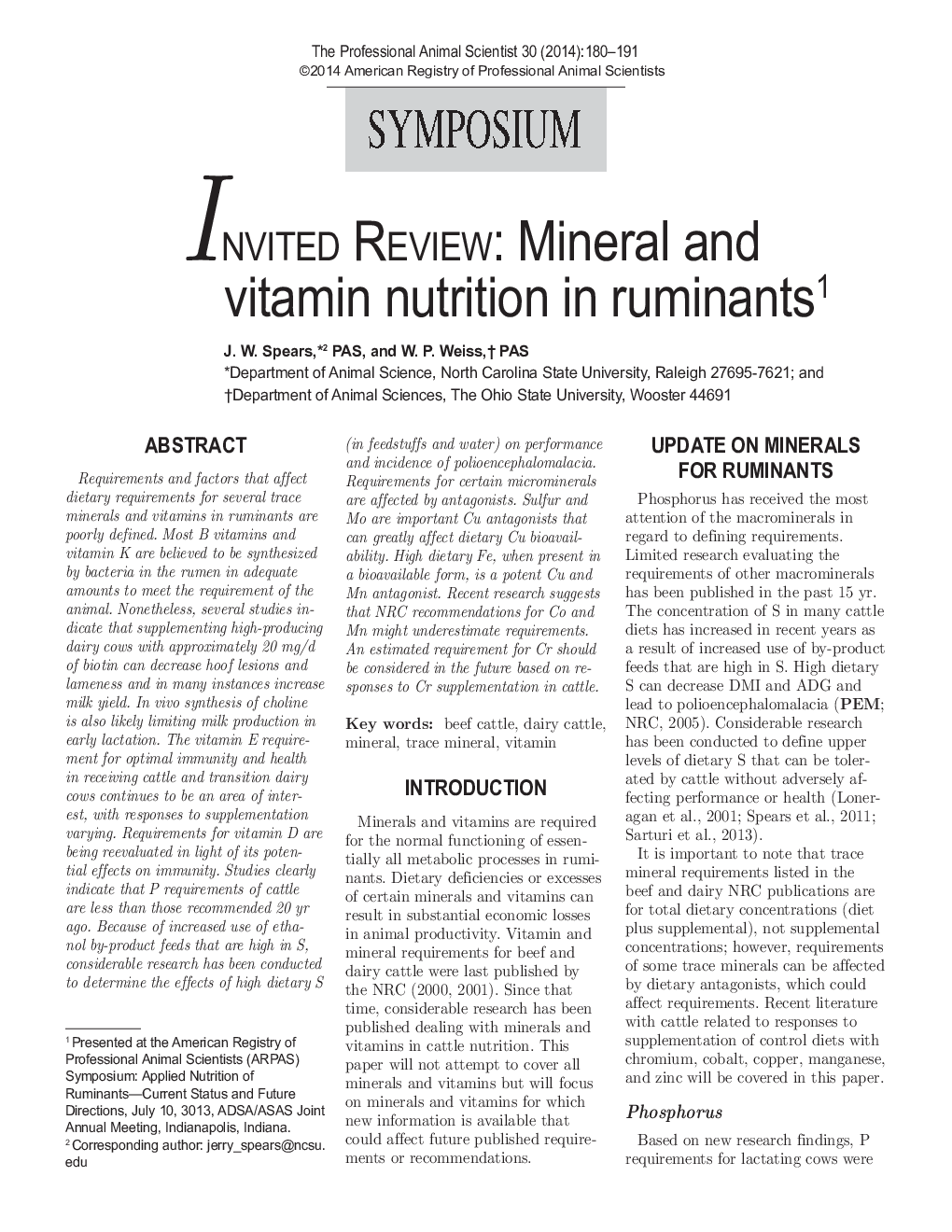| Article ID | Journal | Published Year | Pages | File Type |
|---|---|---|---|---|
| 2453880 | The Professional Animal Scientist | 2014 | 12 Pages |
Abstract
Requirements and factors that affect dietary requirements for several trace minerals and vitamins in ruminants are poorly defined. Most B vitamins and vitamin K are believed to be synthesized by bacteria in the rumen in adequate amounts to meet the requirement of the animal. Nonetheless, several studies indicate that supplementing high-producing dairy cows with approximately 20 mg/d of biotin can decrease hoof lesions and lameness and in many instances increase milk yield. In vivo synthesis of choline is also likely limiting milk production in early lactation. The vitamin E requirement for optimal immunity and health in receiving cattle and transition dairy cows continues to be an area of interest, with responses to supplementation varying. Requirements for vitamin D are being reevaluated in light of its potential effects on immunity. Studies clearly indicate that P requirements of cattle are less than those recommended 20 yr ago. Because of increased use of ethanol by-product feeds that are high in S, considerable research has been conducted to determine the effects of high dietary S (in feedstuffs and water) on performance and incidence of polioencephalomalacia. Requirements for certain microminerals are affected by antagonists. Sulfur and Mo are important Cu antagonists that can greatly affect dietary Cu bioavailability. High dietary Fe, when present in a bioavailable form, is a potent Cu and Mn antagonist. Recent research suggests that NRC recommendations for Co and Mn might underestimate requirements. An estimated requirement for Cr should be considered in the future based on responses to Cr supplementation in cattle.
Related Topics
Life Sciences
Agricultural and Biological Sciences
Animal Science and Zoology
Authors
J.W. PAS, W.P. PAS,
